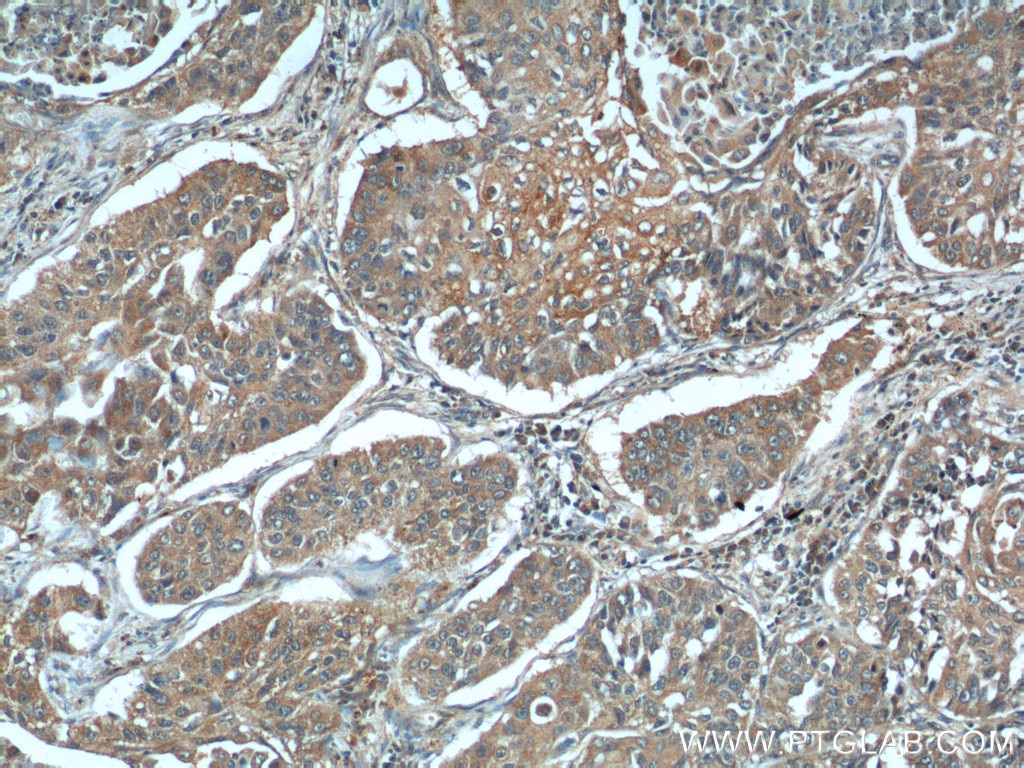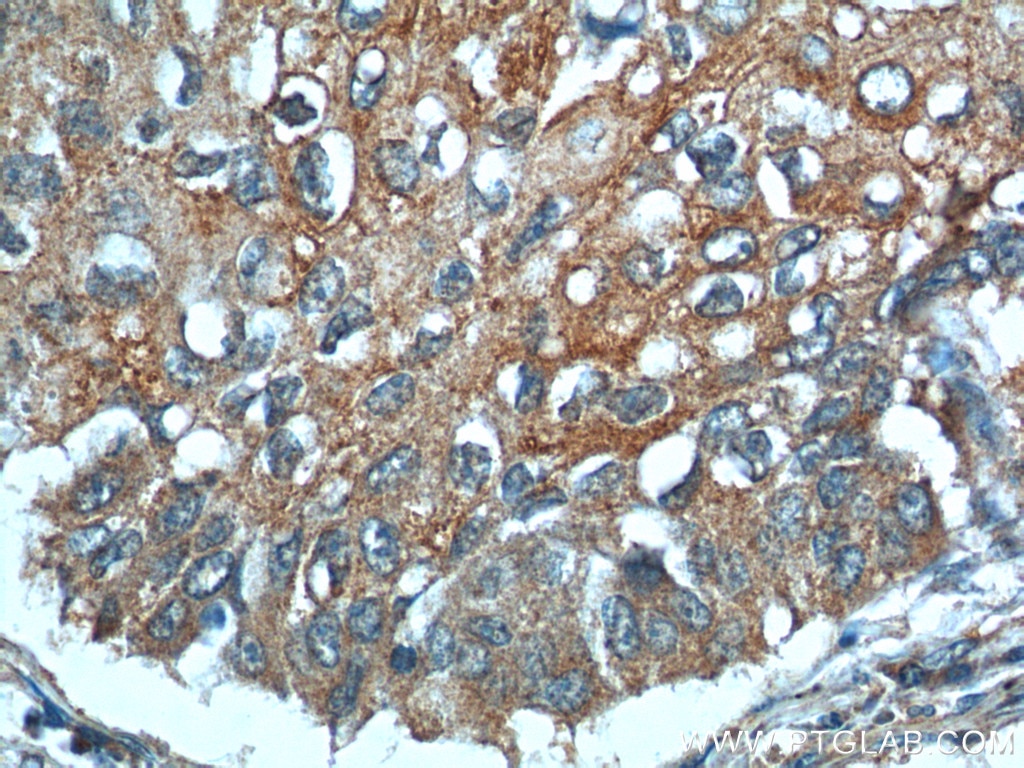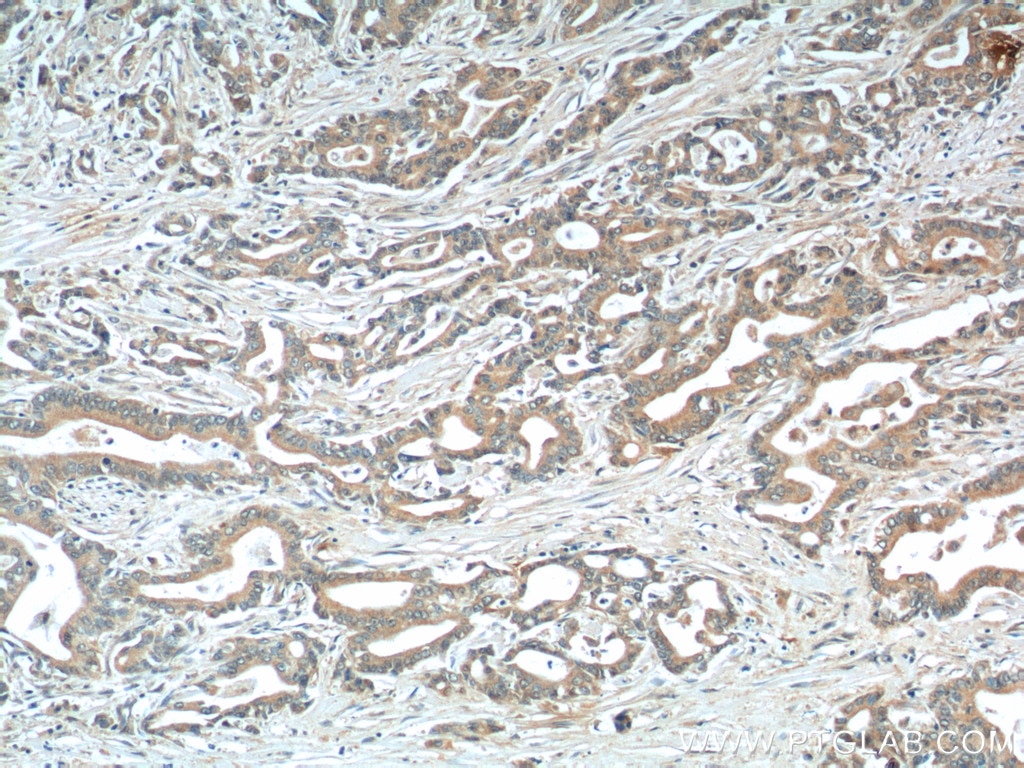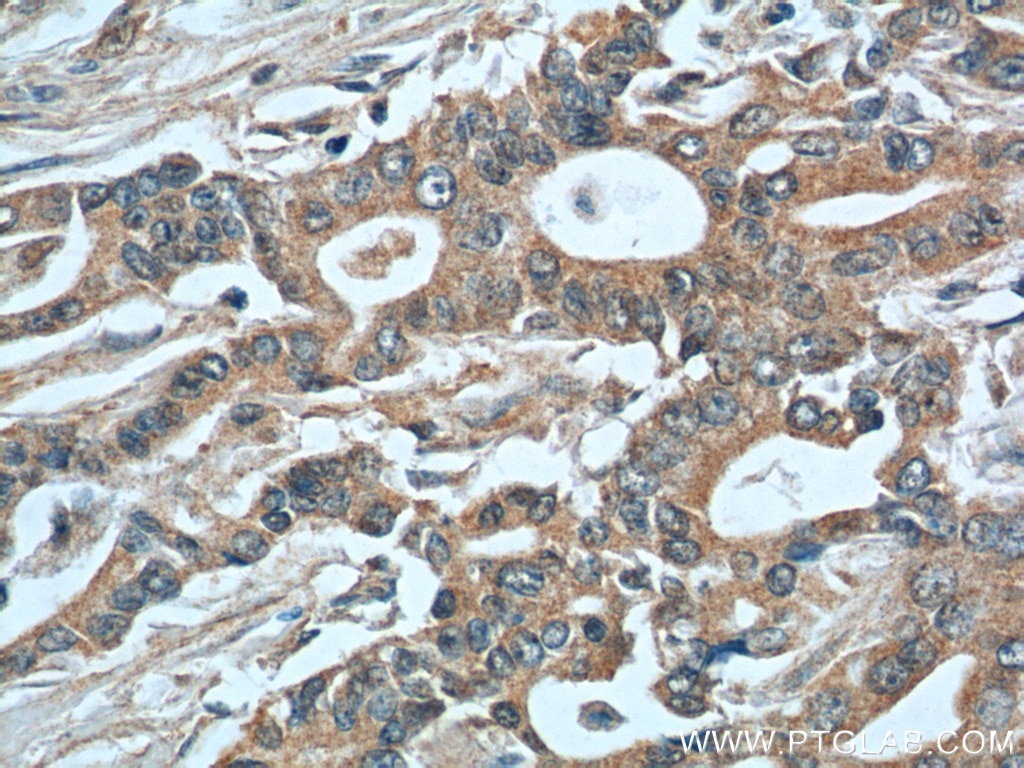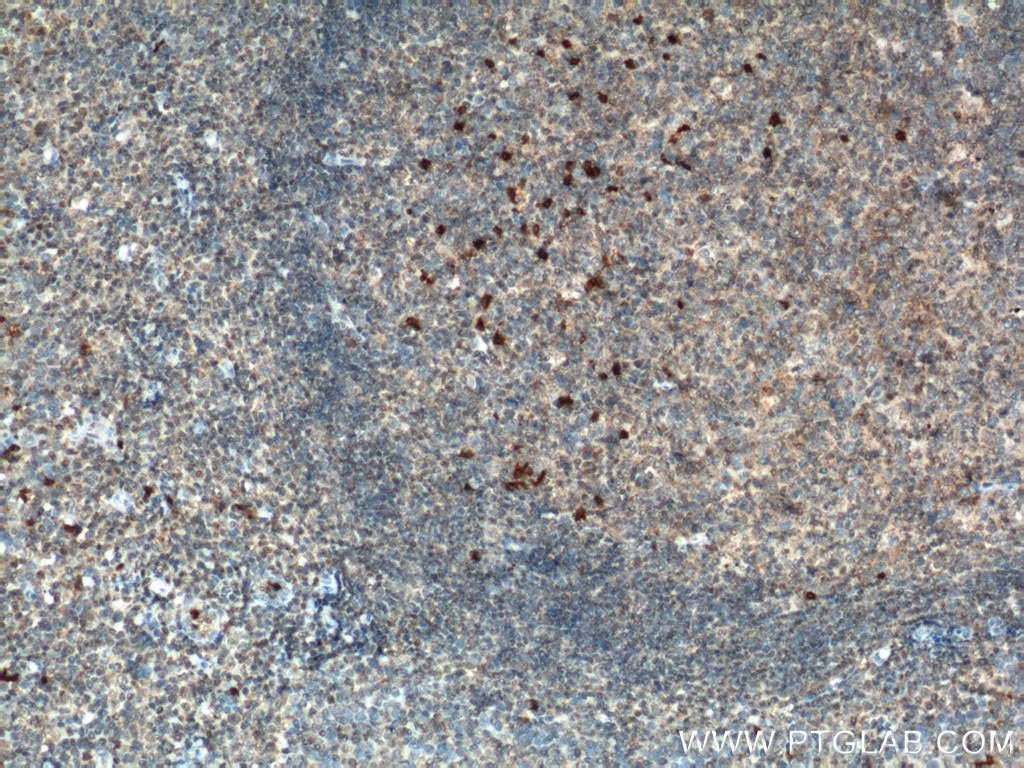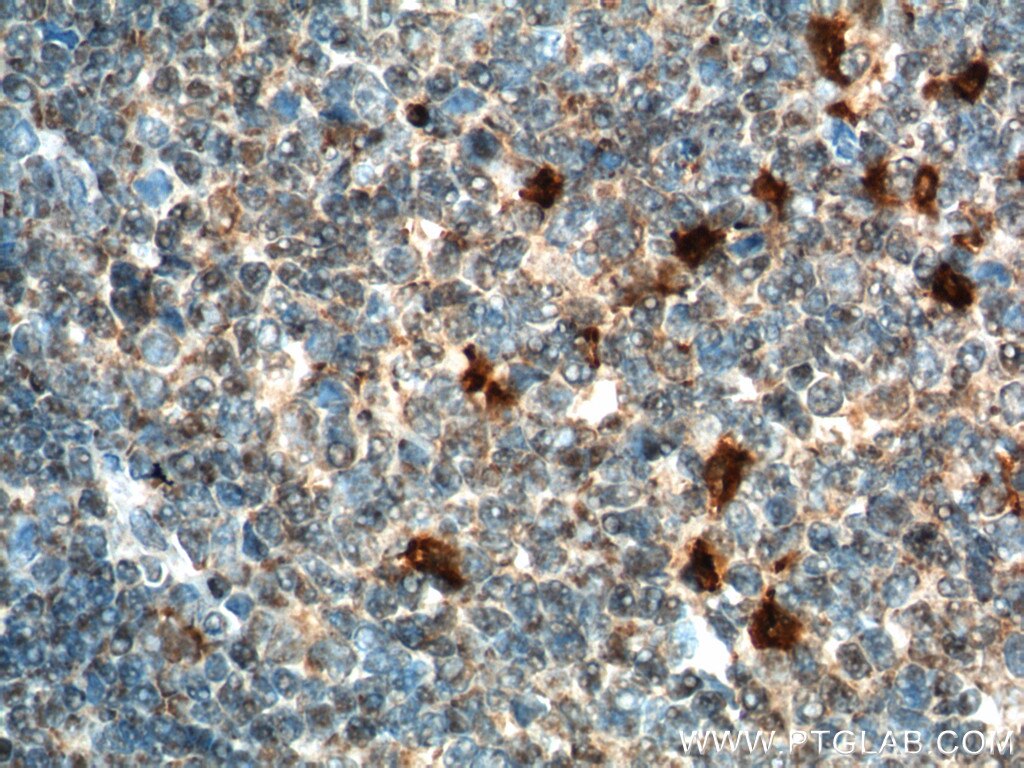Anticorps Polyclonal de lapin anti-CCL20/MIP-3 alpha
CCL20/MIP-3 alpha Polyclonal Antibody for IHC, ELISA
Hôte / Isotype
Lapin / IgG
Réactivité testée
Humain et plus (2)
Applications
IHC, IF, ELISA
Conjugaison
Non conjugué
N° de cat : 26527-1-AP
Synonymes
Galerie de données de validation
Applications testées
| Résultats positifs en IHC | tissu de cancer du poumon humain, tissu d'amygdalite humain, tissu de cancer du pancréas humain il est suggéré de démasquer l'antigène avec un tampon de TE buffer pH 9.0; (*) À défaut, 'le démasquage de l'antigène peut être 'effectué avec un tampon citrate pH 6,0. |
Dilution recommandée
| Application | Dilution |
|---|---|
| Immunohistochimie (IHC) | IHC : 1:50-1:500 |
| It is recommended that this reagent should be titrated in each testing system to obtain optimal results. | |
| Sample-dependent, check data in validation data gallery | |
Applications publiées
| IHC | See 4 publications below |
| IF | See 3 publications below |
Informations sur le produit
26527-1-AP cible CCL20/MIP-3 alpha dans les applications de IHC, IF, ELISA et montre une réactivité avec des échantillons Humain
| Réactivité | Humain |
| Réactivité citée | rat, Humain, souris |
| Hôte / Isotype | Lapin / IgG |
| Clonalité | Polyclonal |
| Type | Anticorps |
| Immunogène | CCL20/MIP-3 alpha Protéine recombinante Ag24069 |
| Nom complet | chemokine (C-C motif) ligand 20 |
| Masse moléculaire calculée | 11 kDa |
| Numéro d’acquisition GenBank | BC020698 |
| Symbole du gène | CCL20/MIP-3 alpha |
| Identification du gène (NCBI) | 6364 |
| Conjugaison | Non conjugué |
| Forme | Liquide |
| Méthode de purification | Purification par affinité contre l'antigène |
| Tampon de stockage | PBS with 0.02% sodium azide and 50% glycerol |
| Conditions de stockage | Stocker à -20°C. Stable pendant un an après l'expédition. L'aliquotage n'est pas nécessaire pour le stockage à -20oC Les 20ul contiennent 0,1% de BSA. |
Informations générales
CCL20, also known as macrophage infiltrating factor protein 3α, is a C-C chemokine that specifically binds to the receptor CCR6. CCL20 is produced in various tissues and by a wide range of immune cells, including neutrophils, natural killer cells, T-helper type 17 (Th17) cells, B cells, and various antigen-presenting cells, such as dendritic cells (DCs), Langerhans cells, and macrophages. Increased expression of CCL20 is likely involved in the increased recruitment of dendritic cells observed in fibroinflammatory diseases such as chronic obstructive pulmonary disease (COPD). CCL20 expression is increased by the proinflammatory cytokine IL-1 beta.
Protocole
| Product Specific Protocols | |
|---|---|
| IHC protocol for CCL20/MIP-3 alpha antibody 26527-1-AP | Download protocol |
| Standard Protocols | |
|---|---|
| Click here to view our Standard Protocols |
Publications
| Species | Application | Title |
|---|---|---|
Gut Microbes Fusobacterium nucleatum promotes colorectal cancer metastasis through miR-1322/CCL20 axis and M2 polarization | ||
Front Cell Dev Biol EZH2-Inhibited MicroRNA-454-3p Promotes M2 Macrophage Polarization in Glioma. | ||
Phytomedicine The secretion of sIgA and dendritic cells activation in the intestinal of cyclophosphamide-induced immunosuppressed mice are regulated by Alhagi honey polysaccharides. | ||
Oncol Rep DEPDC1 drives hepatocellular carcinoma cell proliferation, invasion and angiogenesis by regulating the CCL20/CCR6 signaling pathway. | ||
Oncol Lett Overexpression of B7-H4 promotes renal cell carcinoma progression by recruiting tumor-associated neutrophils via upregulation of CXCL8. |
